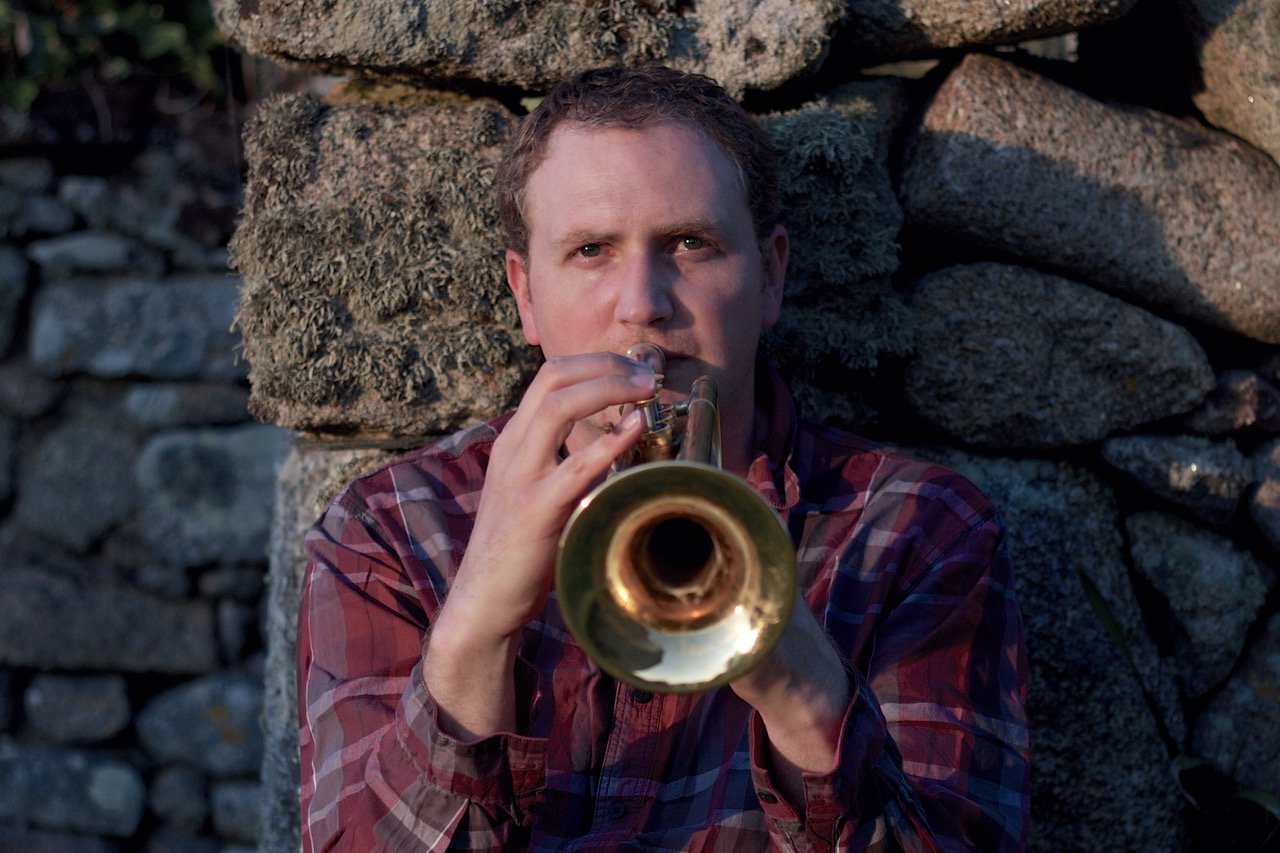Brubeck Living Legacy, Inc, in partnership with Ubuntu Music, and The Royal Academy of Music, is delighted to announce the creation of The Brubeck Living Legacy Prize, which will be awarded to the most deserving jazz student of The Royal Academy of Music in London, UK, each year, for an initial three-year period. Their album will be released on the Ubuntu Music record label.
In 2019, the Dave Brubeck family founded Brubeck Living Legacy with the goal of promoting awareness, interest and the understanding of jazz and its role in American and international culture. Brubeck Living Legacy supports educational opportunities and live concerts that recognize the contributions of Dave and Iola Brubeck, and others, to modern American music, the civil rights movement and to the community of musicians worldwide.
The Brubeck Living Legacy Prize will be awarded each year to a young musician who demonstrates excellence in both performance and composition, selected from the jazz musician student body at the Royal Academy of Music in their final two years of study, as well as those in the first year following graduation. The prize includes funding and support for the release of the individual’s proposed recording on the Ubuntu Music record label. Eligible musicians would submit an online application for consideration, which would then be reviewed by a panel of industry-related judges. For the first year, the judges will include composer/arranger/pianist and President of Brubeck Living Legacy Darius Brubeck, Royal Academy of Music Professor & Head of Jazz Programmes Nick Smart, jazz vocalist, recording artist and co-founder of ECN Music Claire Martin (OBE), and founder/director of Ubuntu Music, Martin Hummel.
On behalf of Brubeck Living Legacy, Darius Brubeck shares his view: “Brubeck Living Legacy promotes awareness, interest and the understanding of jazz and its role in American and international culture. It builds on Dave and Iola Brubeck’s lifelong dedication to music, creativity, and the promotion of social justice through performance, education, and outreach.
“As president of Brubeck Living Legacy, I can say that we are committed to supporting this imaginative initiative by Ubuntu Music and the Royal Academy of Music. Brubeck Living Legacy is already involved in high-level education creatively and financially in America and this is our first partnership based in a foreign country. As a long-time UK resident, I am excited to see this taking shape before my eyes and will do my part in making it a success.”
Royal Academy of Music’s Nick Smart continues: “We are delighted to be part of this important partnership alongside Ubuntu Music and with the endorsement and support of the Brubeck Living Legacy. The jazz community that exists at the Royal Academy has a long history of nurturing outstanding young artists who go on to lead successful lives in every corner of the musical profession. This new prize will give a high-profile platform to the next generation of deserving musicians and bandleaders with something to say on the contemporary scene. It is an honour to be part of an initiative that is a continuation of Dave and Iola Brubeck’s lifelong dedication to music, creativity and the promotion of social justice through performance, education and outreach.”
ECN’s Claire Martin gives her perspective: “What a fantastic initiative and one that I am very honoured to be part of. I’m excited to hear the next generation of musicians coming through and it is this kind of platform that can really provide the perfect launch pad for up-and-coming musicians as they embark on their career in the music industry.”
Ubuntu Music’s Martin Hummel offers his parting thoughts: “When we started the Ubuntu Music record label, we were 100% committed to delivering a platform that would allow our artists to share their music all over the world, in with best-of-breed distribution technology thanks to our partners, The Orchard (Sony Music). We see ourselves as enablers, managing the multi-tiered logistics of a worldwide album release, while guiding the artists through an often-intimidating journey. We do everything we can to ensure a successful release, while the artist concentrates on their number one priority – their music and the development of their career as professional musicians.”
For further information, please contact:
Emma Perry (UK Publicity): emma@ecnmusic.com
Catherine Brubeck (Brubeck Living Legacy Information): catherinebrubeck@gmail.com
Nick Smart (Royal Academy of Music): n.smart@ram.ac.uk
Martin Hummel/Ubuntu Music (Worldwide): martin@ubuntumanagementgroup.com
BIOGRAPHIES
Darius Brubeck
Darius Brubeck (Photographer: Rob Blackham)
Pianist, composer and band leader, Darius Brubeck was the Head of Jazz Studies and Director of the Centre for Jazz & Popular Music at the University of KwaZulu-Natal, Durban, South Africa from 1983 until 2006 when he moved to London and established The Darius Brubeck Quartet. This group’s most recent recording Live in Poland (listed in Downbeat’s best of 2020) reflects their international profile.
His book, Playing the Changes, coauthored with his wife, Catherine, will be published internationally in July 2024 by the University of Illinois Press.
Link: www.dariusbrubeck.com
Nick Smart
Nick Smart
Head of Jazz at the Royal Academy of Music, Nick Smart is an internationally renowned jazz educator, trumpeter and conductor who has given guest masterclasses and performances around the world. Nick has performed alongside some of the leading names in jazz and was a member of the late Kenny Wheeler's Big Band with whom he had a long association and has just finished co-writing Wheeler's biography. He has released three albums as a leader to critical acclaim, including 2005’s Remembering Nick Drake which was described by Straight No Chaser magazine as “…a future classic because it really captures all that is best about British jazz….”. He has been equally in demand as both educator and musical director.
Link: www.ram.ac.uk
Claire Martin
Claire Martin (Photographer: Kenny McCracken)
Claire Martin OBE has established herself as a tour de force on the UK jazz scene and rest of world, gaining many prestigious awards including winning the British Jazz Awards eight times during her career which spans over three decades. In 2018 she was the proud recipient of the BASCA Gold Badge Award for her contribution to Songwriting and was awarded the OBE for her Services to Jazz in 2011.
Claire shares her perspective on the Brubeck Living Legacy Prize: “What a fantastic initiative and one that I am very honoured to be part of. I’m excited to hear the next generation of musicians coming through and it is this kind of platform that can really provide the perfect launch pad for up-and-coming musicians as they embark on their career in the music industry.”
Link: https://clairemartinjazz.co.uk/
Martin Hummel
Martin Hummel (Photographer: Peak15)
Martin Hummel is a seasoned executive with extensive experience in managing communications for brands on a global, regional and local basis across multiple disciplines and business sectors. He has led a range of communications agencies as Chief Executive, as well as founding and directing start-up businesses that include consulting, talent management and recorded music.
Music has been an integral part of Martin’s entire life. Since his early days as a musician, Martin staged concerts as a teenager (featuring Elton John), worked in various music clubs and was a DJ/Music Director in US professional radio. For 17 years, he was responsible for Pepsi-Cola’s international communications, where he worked with the likes of Michael Jackson, Madonna, Tina Turner, The Spice Girls, Britney Spears, Beyoncé, Robbie Williams and Pink, amongst many others. In 2017, he founded Ubuntu Music, the independent jazz record label whose artists include Darius Brubeck, Chet Baker, Eric Alexander, Harold Mabern, Paul Booth, Tim Garland and rising stars from all corners of the world.
]Link: www.weareubuntumusic.com



















